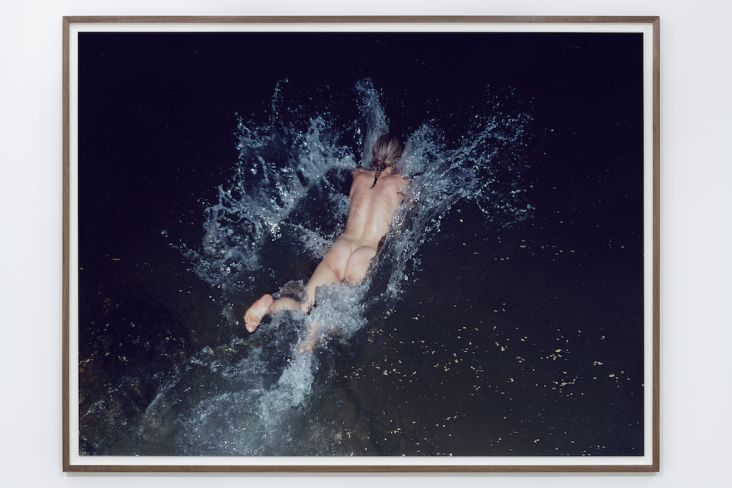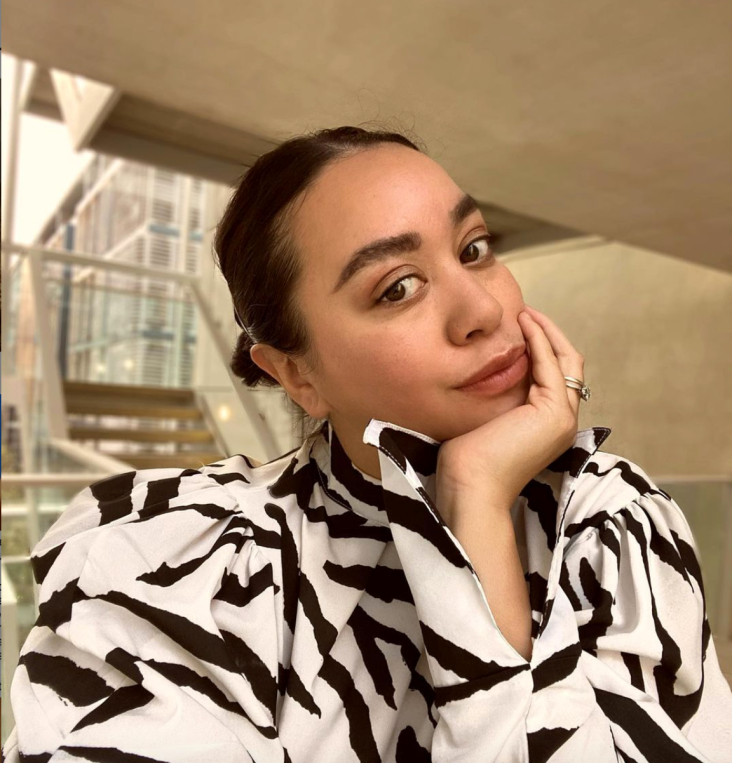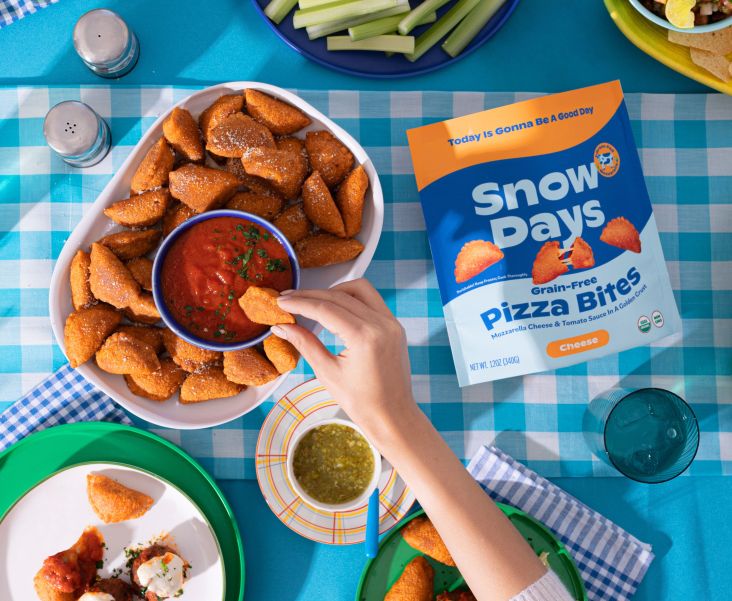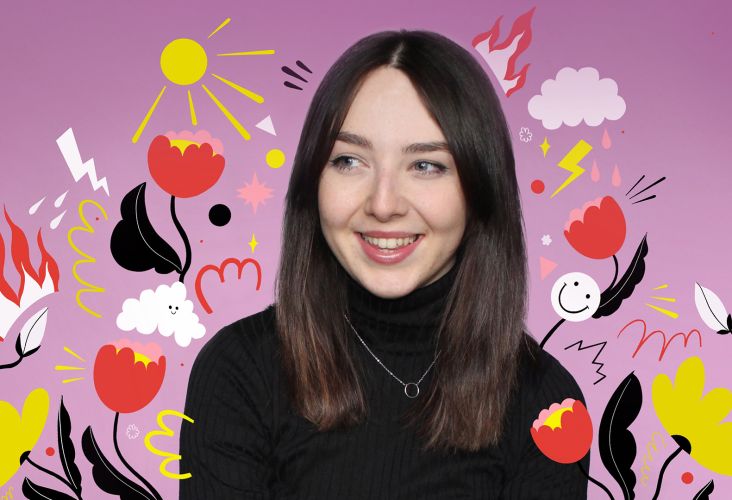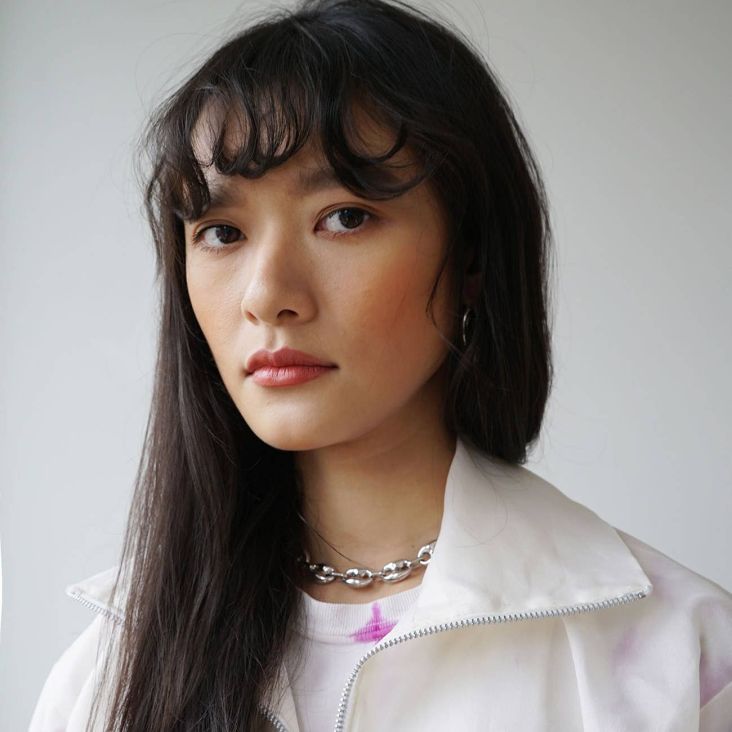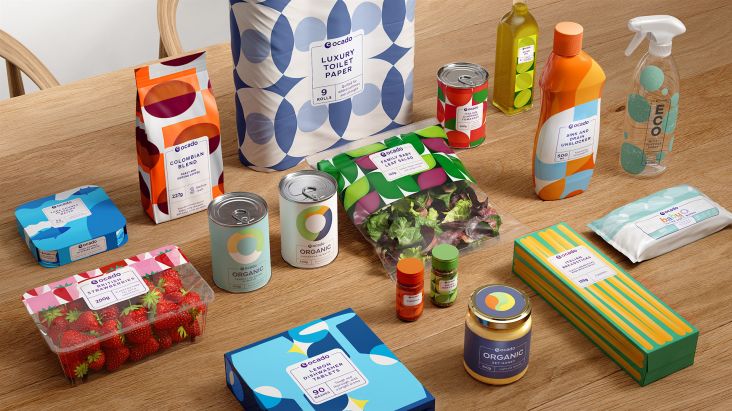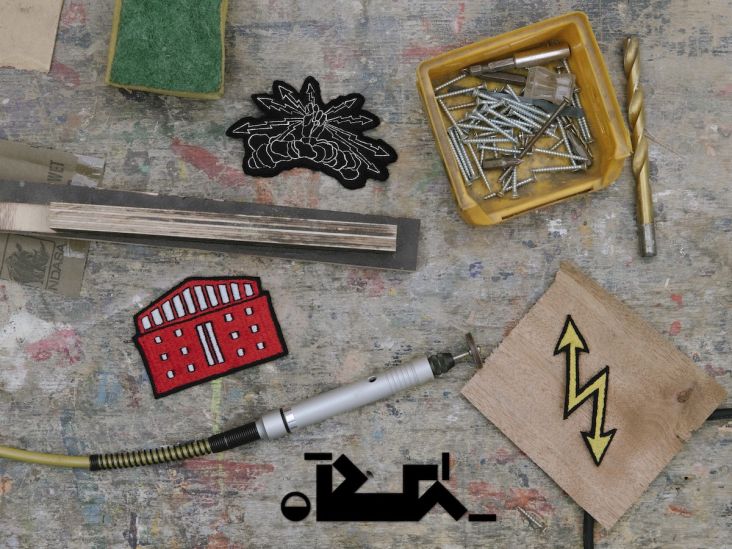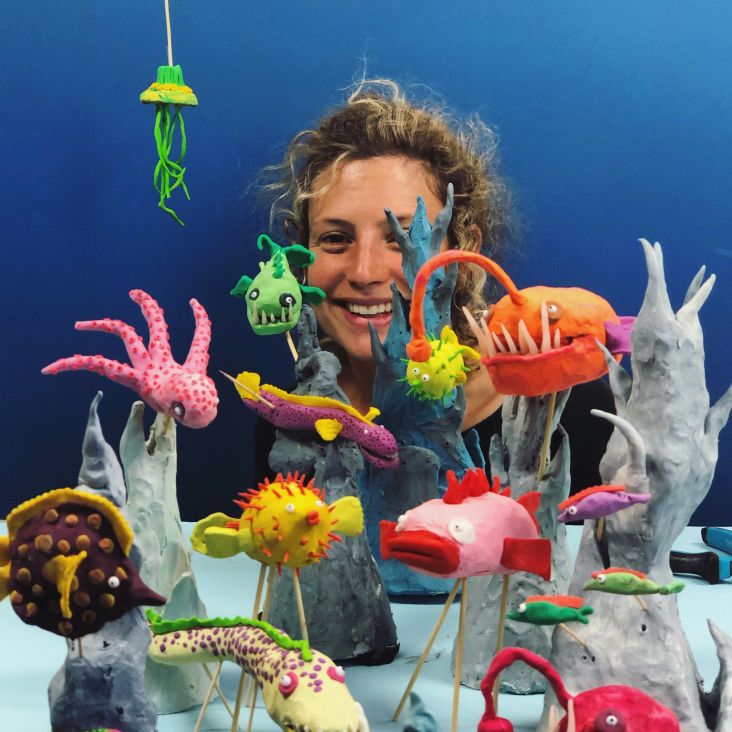Justine Allenette Ross on black utopias, black trauma, and the power of visual language
Originally from Detroit, Justine Allenette Ross is an American illustrator who focuses on human interaction, blackness, and playful observation. With influences ranging from Keith Haring and Norman Rockwell to Corita Kent, Emory Douglas, and Mickalene Thomas, Justine has always believed in the power of creating visual language that anyone and everyone can understand. Inclusivity, ultimately, is at the heart of her practice.
© Justine Allenette Ross, Self-Portrait
Her most recent work, The Negro Series, is her reaction to black trauma without depicting it. So far, it comes in three parts: 'Brunching Negros', 'Negros in Nature' and 'Negros at Home Minding Their Business'.
"I wanted to create a world where black people are safe. Specifically, 'Negros at Home' was a reaction to Breonna Taylor being killed in her home and how, unfortunately, it was a reminder that black people aren't safe in their places of residence. I didn't want to react to the trauma by depicting it. Instead of showing trauma, I wanted to show the opposite. A 'Utopia of Black people' that lets them be themselves and relax," says Justine.
I had the pleasure of speaking with Justine on her black utopias, the power of visual language and more.
I've read your bio, but if you don't mind, please tell me a little about your story!
I was always the class artist. I was the weird kid in school who didn't match, who was always walking around with a sketchbook in her hand. I was not a cool kid. My family is artsy, so I always had support, going into my career.
After graduation from college, I gained experience at both a screen printing and embroidery company and as an art director at an ad agency. That was fun. A video or production company would come in and give a presentation of their work; the nice thing about this that there would always be wine and cheese and crackers! I don't know many jobs where you can get kinda tipsy at, so that was cool cue Madmen jokes. All very bad for my waistline.
It was a rigorous job but also super rewarding. It gave me the experience of working with clients, creating art for everyday use and making art very quickly. It also gave me a sense of quality control, which helped me scrutinise my work. Overall it made me a better illustrator and designer.
When that was over, I took the time to figure out where I wanted to take my art and what I wanted to do with it. Once Covid-19 hit, I decided to take all this free time and draw like a madwoman.
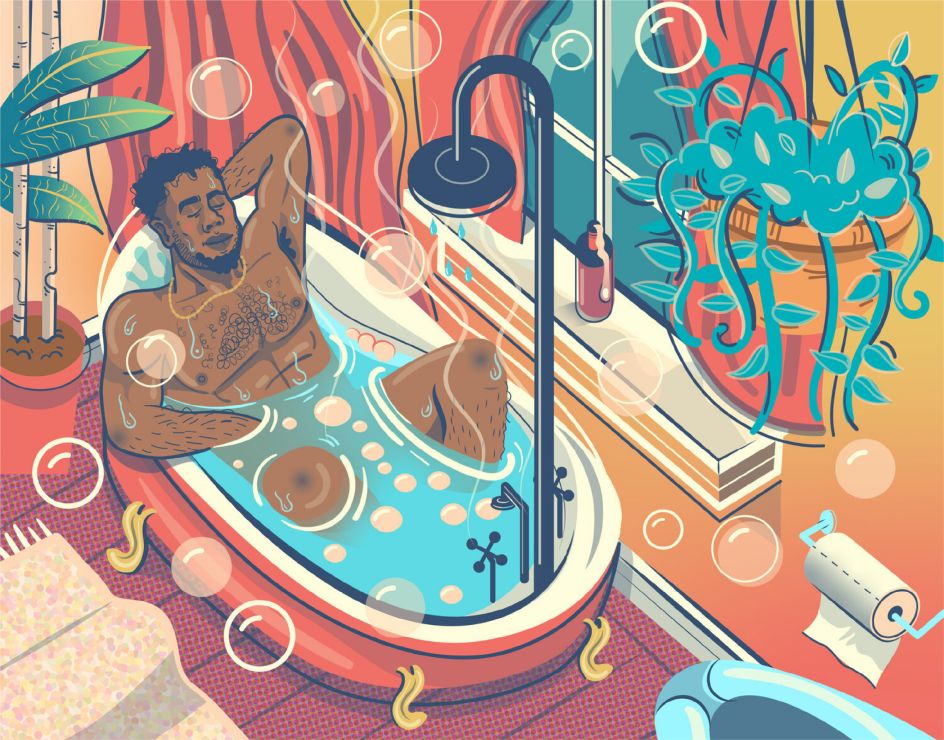
© Justine Allenette Ross, "The Negro Series"
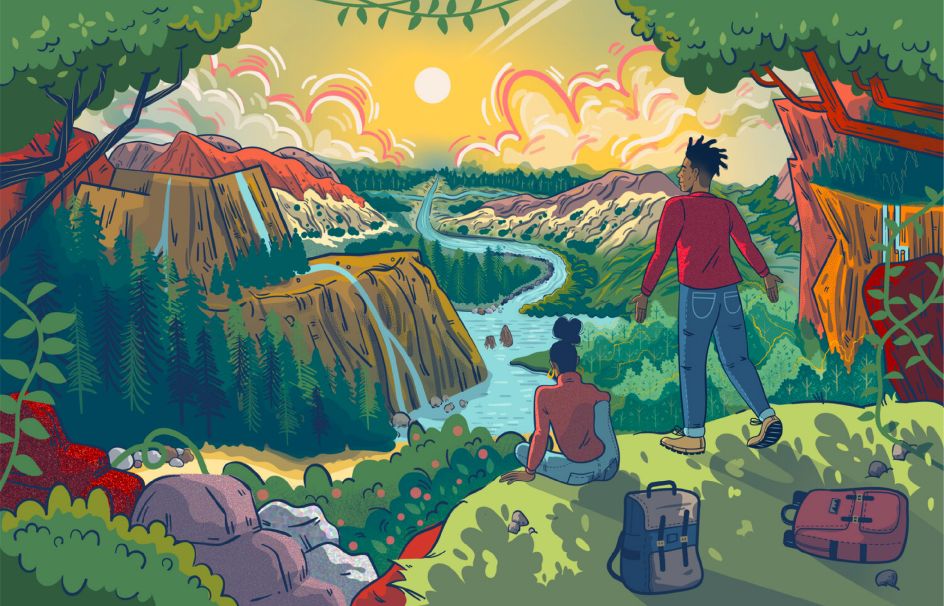
© Justine Allenette Ross, "The Negro Series"
In general, how would you describe your style?
I would describe my work as observational, figurative, playful, cartoony, chaotic, and human, with a touch of umami. I think it's obvious that I grew up watching Nickelodeon and Cartoon Network.
I hope my work ages gracefully that people will always get lost in it. I want my illustrations to look like the viewer just stumbled upon a moment.
Yes, I want all work to be consistent, but at the same time, I'm not so beholden to a particular style that I can't switch it up for each illustration; I always try to give the piece what it needs. I ask myself, "What does this piece need to communicate my point?"
My main goal artistically is for my work to have a universal quality to it. I'm a relatively jaded and pessimistic person, so I think that's why my art is so…optimistic? I want to create the opposite world that lives in my head.
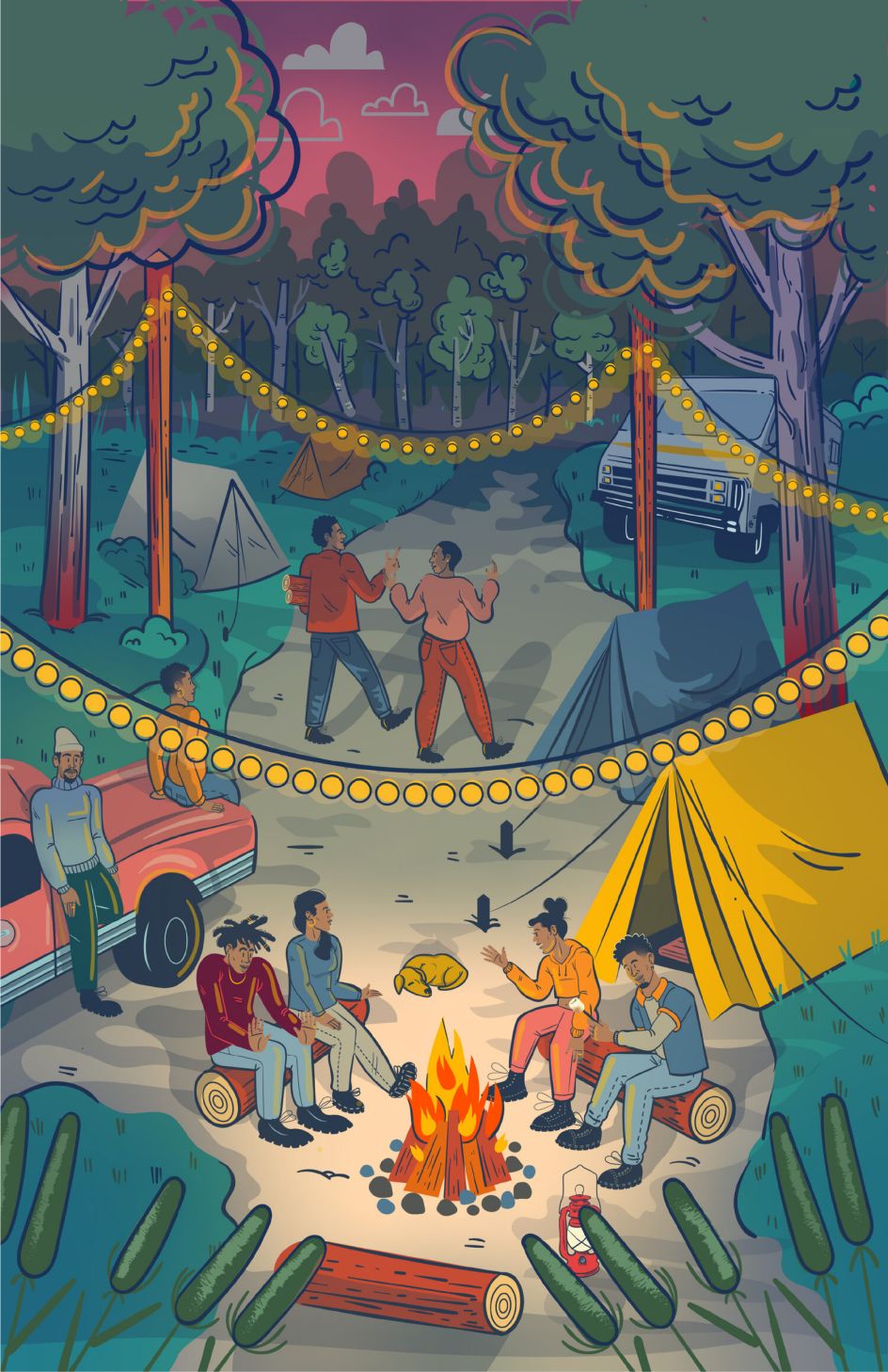
© Justine Allenette Ross, "The Negro Series"
You've mentioned icons like Keith Haring and Norman Rockwell. Any other major influences?
Growing up, I was surrounded by black art. It's all over! It's at your auntie's house and hair salons. I discovered Annie Lee, and she became a huge influence on me. Her work is figurative, and the way she tells visual stories is like no other.
Emory Douglas and Corita Kent are also huge for me, along with Chris Ware. Emory Douglas did work for the Black Panther Party, Corita Kent was a mid-century designer, and Chris Ware is a cartoonist and graphic novelist. In general, American comics from the '90s to the early '00s inspires me greatly.
But my favourite artist is definitely Keith Haring. His work has the universal quality to it without being vague or broad, incredibly approachable and inviting. He managed to make art that had a mass appeal without composing his vision or toning down who he was. He even made t-shirts and pins for people who couldn't afford his paintings or go to his galleries. His art is unifying. He truly made art for the people, and I admire him greatly for that.
Other than that, I'm constantly inspired by music: my two favourite artists are Beyonce and Sufjan Stevens, creators of worlds. It's umami your ears. I want to make umami for your eyes.
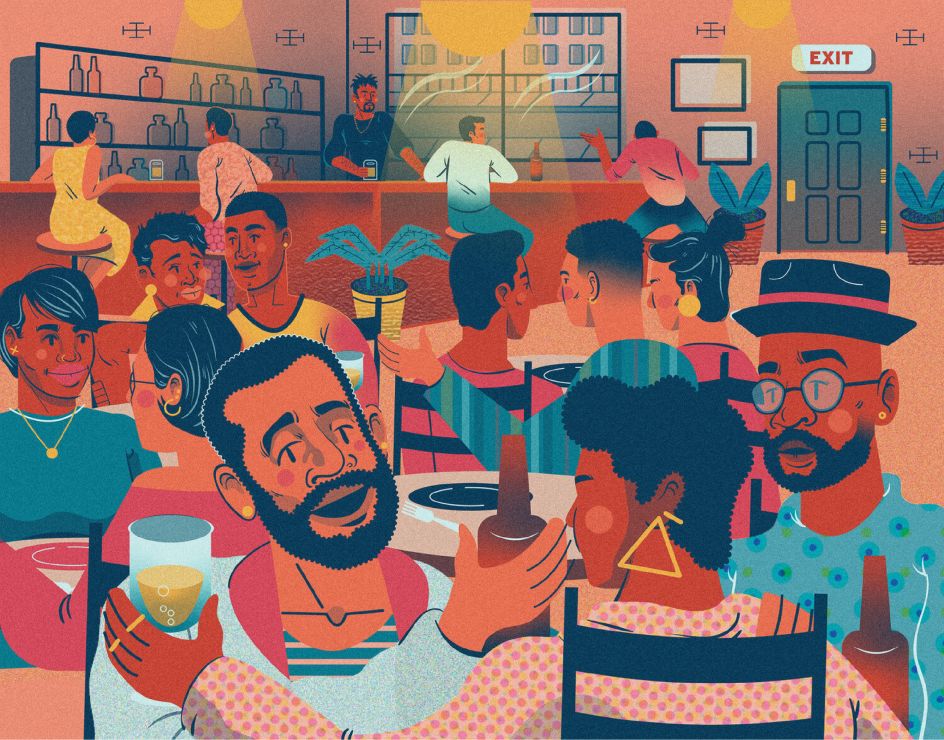
© Justine Allenette Ross, "The Negro Series"
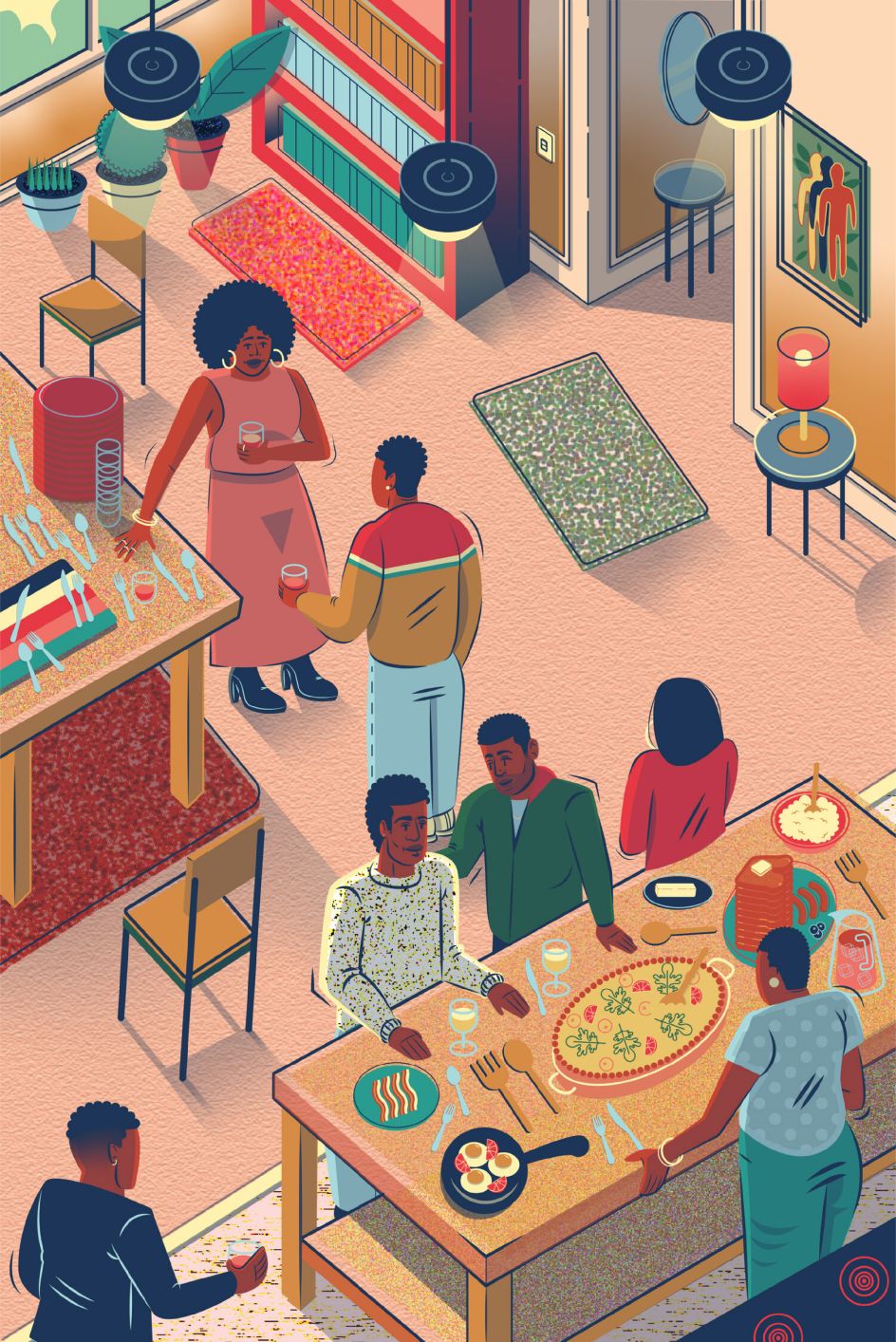
© Justine Allenette Ross, "The Negro Series"
What are you currently working on?
The Negro Series came from the comedian Dulcé Sloan referring to herself as a "Brunch Negro". The term was so funny and sticky that I couldn't get it out of my head, so I decided to make some art out of it.
When I got back home from Northern Michigan, I decided to continue the series with a new theme, 'Negros in Nature'. I wanted to show black people enjoying nature and being unapologetic about it.
Then, since we're all stuck at home due to Covid-19, I made a series focused on being home. I had Breonna Taylor on my mind, and her situation weighed heavy on me, so I wanted to create a series where black people were safe in their homes. I named it 'Negros at Home Minding Their Business'.
With the 'The Negro Series', I wanted to combat collective trauma by envisioning a utopia where black people can be safe and themselves. We see so many depictions of black trauma, and I never felt compelled to add to that, so with this series, I hope people see my work and feel relieved, seeing black people being normal and happy. The series is ongoing, so stay tuned!
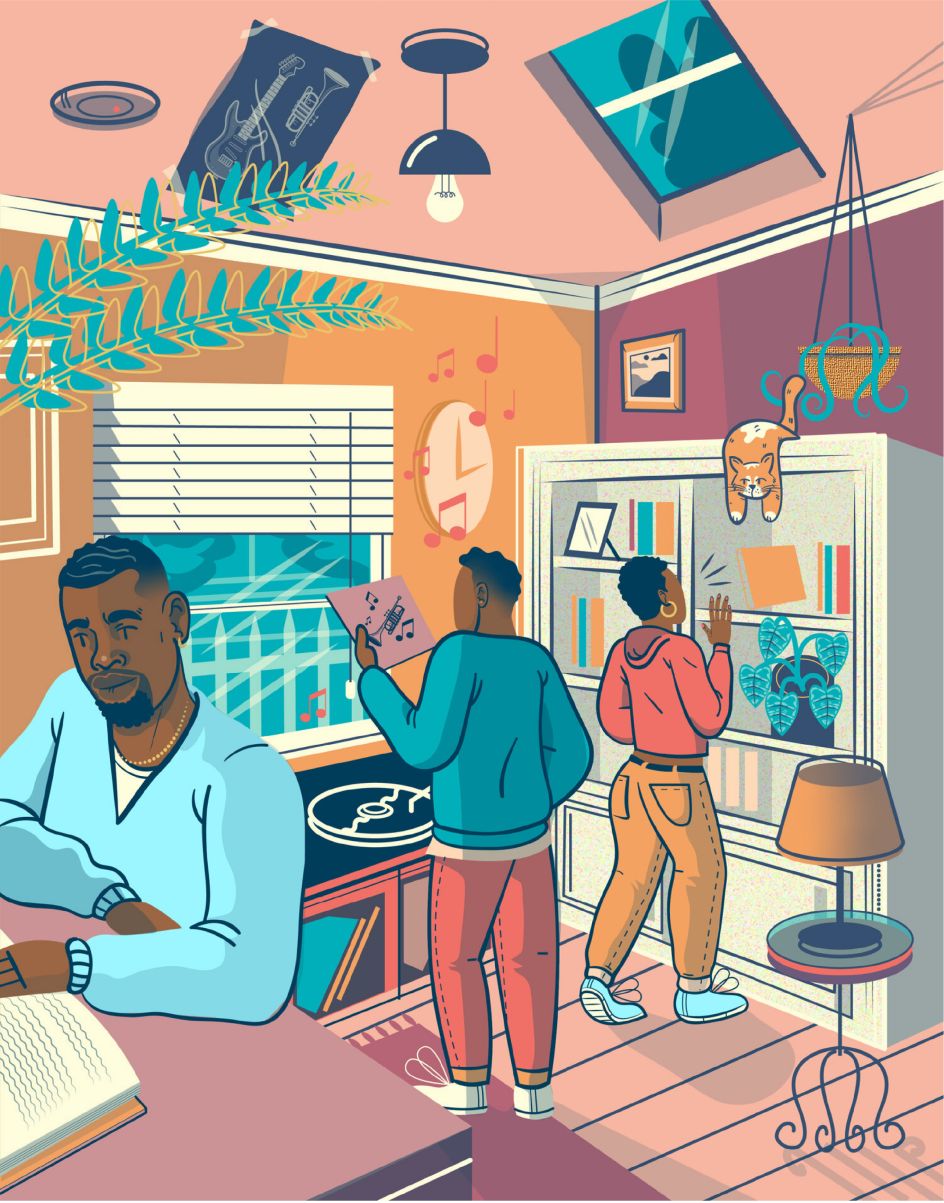
© Justine Allenette Ross, "The Negro Series"
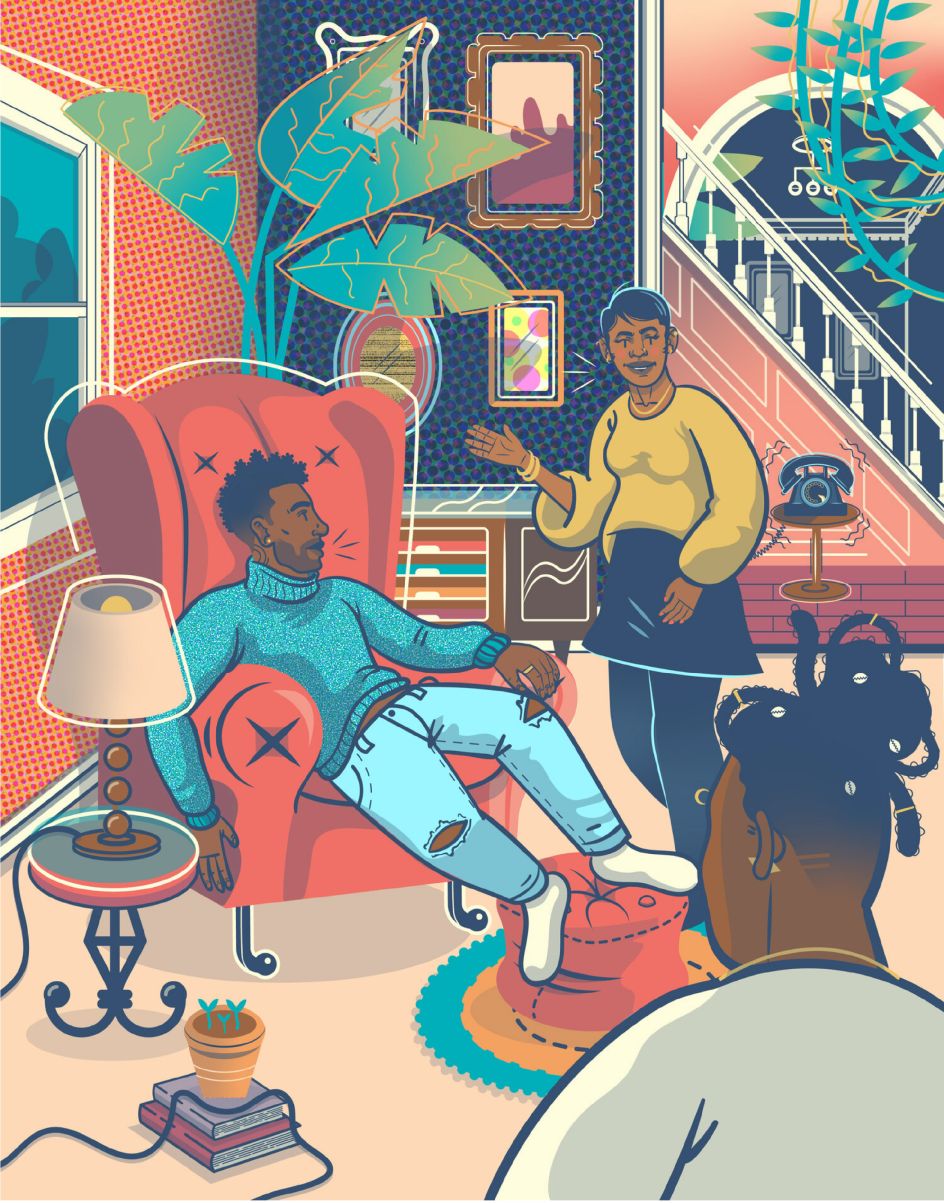
© Justine Allenette Ross, "The Negro Series"
Something we're asking everyone: how are you staying motivated during the pandemic?
The pandemic is a double-edged sword for me; there was a lot of death. But being at home gave me time to focus on my craft and decide what I want to say in my art and what I want to put into the universe. I've been drawing like a madwoman, and as a consequence, my artwork has gotten better. Covid-19 gave me focus, as morbid as that sounds. I'm also a huge introvert, so staying at home and drawing was not a huge adjustment for me.
What's keeping me motivated during this time is such a positive reception of my work. People have been so positive about my output and my illustrations that it gives me the confidence to keep going. Illustration is such a lonely job that when I have the opportunity to work with clients or to collaborate with someone, that also helps. It keeps me normal.
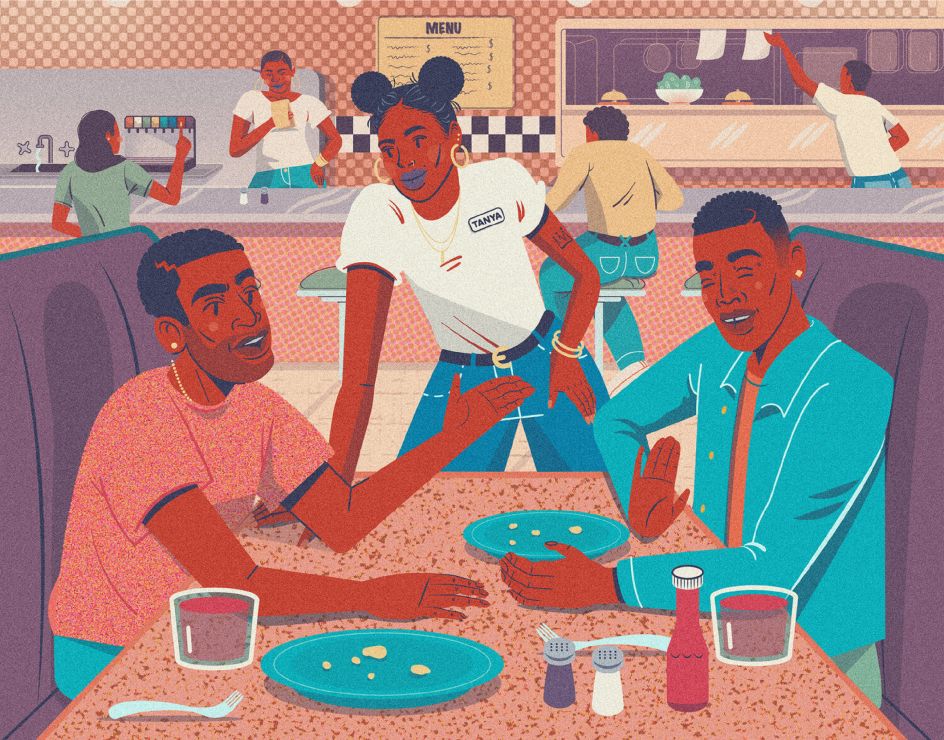
© Justine Allenette Ross, "The Negro Series"

© Justine Allenette Ross, "The Negro Series"
I love your celebration of blackness, as well as the dialogue you create around black trauma. What role do you think artists might have in shaping a better future for all of us?
Tactically, the best way for an artist to make a better world is to lend their creativity and vision to causes they believe in. Make signs for a protest, hit up your local non-profit to see if they need any creative services.
Holistically, however, the best way for an artist to create a better future is to do work that is true to themselves and their passions. If you're passionate about climate change, do work about that. If you're a feminist, do work about that. If you love house plants, draw house plants! Create honest work that's important to you, and by doing that, you'll show why what you're passionate about should be important to other people. If you're true to yourself, it's better for the planet.
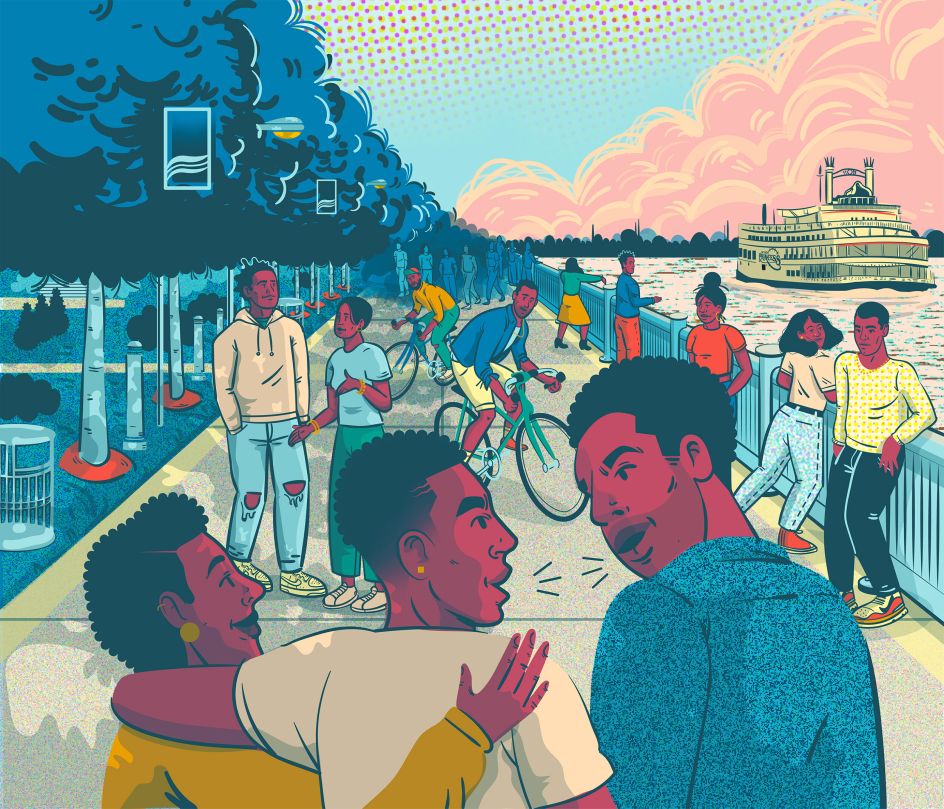
© Justine Allenette Ross, "River Walk"

















